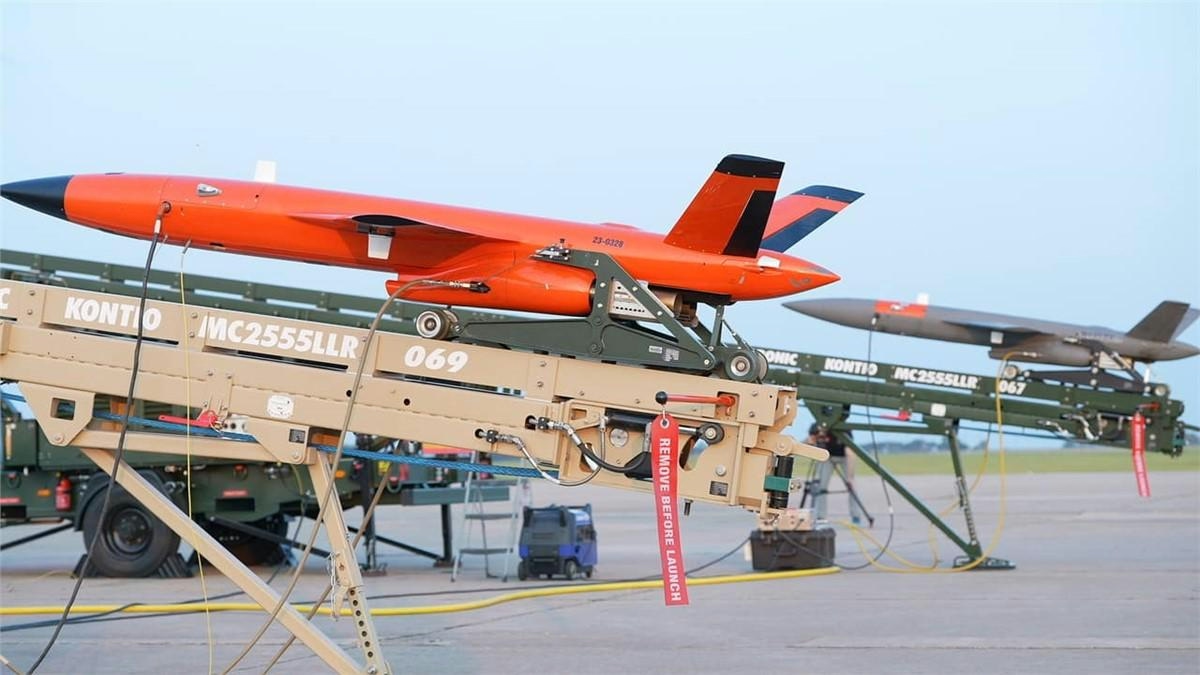AeroGenie — Tu copiloto inteligente.
Tendencias
Categories
BQM-177A and Airbus DT25 Target Drones Tested with Hivemind AI

BQM-177A and Airbus DT25 Target Drones Tested with Hivemind AI
Shield AI’s Hivemind artificial intelligence software has achieved a significant milestone by enabling autonomous maneuvers on both the Kratos BQM-177A and Airbus DT25 target drones. This development marks a notable advancement in unmanned aerial system capabilities, particularly for military applications.
Demonstration of Autonomous Flight Capabilities
On September 22, 2025, the U.S. Navy’s Naval Air Systems Command (NAVAIR) and Shield AI announced the successful test flight of two BQM-177A aerial targets equipped with Hivemind at the Point Mugu Sea Range in California. The demonstration, conducted on August 5, replicated threat-representative flight profiles and adversary-style maneuvers. It supported the Navy’s Collaborative Combat Aircraft (CCA) program under the Experimental Platform for Intelligent Combat (EPIC) project and represented the Navy’s first beyond-visual-range (BVR) autonomy mission on a high-speed platform.
This integration follows an August 2024 contract awarded by NAVAIR to Shield AI, tasking the company with developing a robust prototype test bed for autonomous flight operations. The demonstration validated key objectives related to manned-unmanned teaming and was overseen by the Navy’s Strike Planning and Execution (PMA-281) and Aerial Targets (PMA-208) programs. A subsequent test is planned for later this year.
NAVAIR described Hivemind as a system that enables aircraft to operate independently by leveraging real-time sensor data and onboard processing to make decisions, plan routes, and execute maneuvers without remote input. Designed as an open, modular platform, Hivemind is adaptable across a range of Department of Defense systems. Kratos, the developer of the BQM-177A, collaborated closely with Shield AI to integrate the software as part of broader development efforts.
Expanding Applications and Technological Innovations
On September 23, Shield AI announced the successful test of Airbus Defence and Space’s DT25 target drone equipped with Hivemind at Andøya, Norway. During this trial, the DT25 autonomously tracked a live-flying adversary aircraft in both permissive and degraded environments, demonstrating the software’s versatility and robustness.
Beyond these platforms, Hivemind also powers General Atomics Aeronautical Systems’ MQ-20 Avenger UCAV, which has demonstrated simulated and live Beyond Line-of-Sight (BLOS) air-to-air engagements. Additionally, Airbus’s MQ-72C Lakota unmanned rotary-wing platform recently completed its first autonomous test flight in Texas using the software.
During the BQM-177A trials, one drone showcased Advanced Vehicle Control Laws (AVCL), a Kratos technology updated to meet Navy safety and airworthiness standards. AVCL enables the aircraft to execute complex, dynamic maneuvers by translating high-level mission commands into real-time flight control inputs, thereby enhancing threat-representative capabilities. Meanwhile, the second drone performed additional autonomous behaviors, further illustrating the system’s operational flexibility.
Challenges and Industry Implications
Despite these technological advancements, integrating sophisticated AI systems like Hivemind with existing drone infrastructure presents several challenges. These include ensuring seamless system compatibility, addressing cybersecurity vulnerabilities, and navigating evolving regulatory frameworks. The defense sector has responded with increased interest from contractors and government agencies, recognizing the strategic value of advanced autonomy in military operations.
Competitors are expected to accelerate the development of similar AI-driven drone technologies and increase investment in autonomous defense solutions. As Shield AI and its partners continue to push the boundaries of autonomous flight, these trials underscore a transformative shift in military aviation, where AI-driven systems are set to play a central role in future combat operations.

Emirates Unveils Cabin Design for New Boeing 777X

Eighteen Years On, the Airbus A380 Remains Central to a $34 Billion Airline

How a boom in luxury airline seats is slowing down jet deliveries

Navitaire Outage Attributed to Planned Maintenance

DigiYatra Debuts Outside Aviation at India AI Impact Summit

Vietnam Orders Strengthen Boeing’s Commercial Outlook

Airbus Signals Uncertainty Over Future A400M Orders

JobsOhio Awards $2 Million Grant to Hartzell Propeller for Innovation Center

Collins Aerospace Tests Sidekick Autonomy Software on YFQ-42A for U.S. Air Force CCA Program

How the Airbus A350-1000 Compares to the Boeing 777
